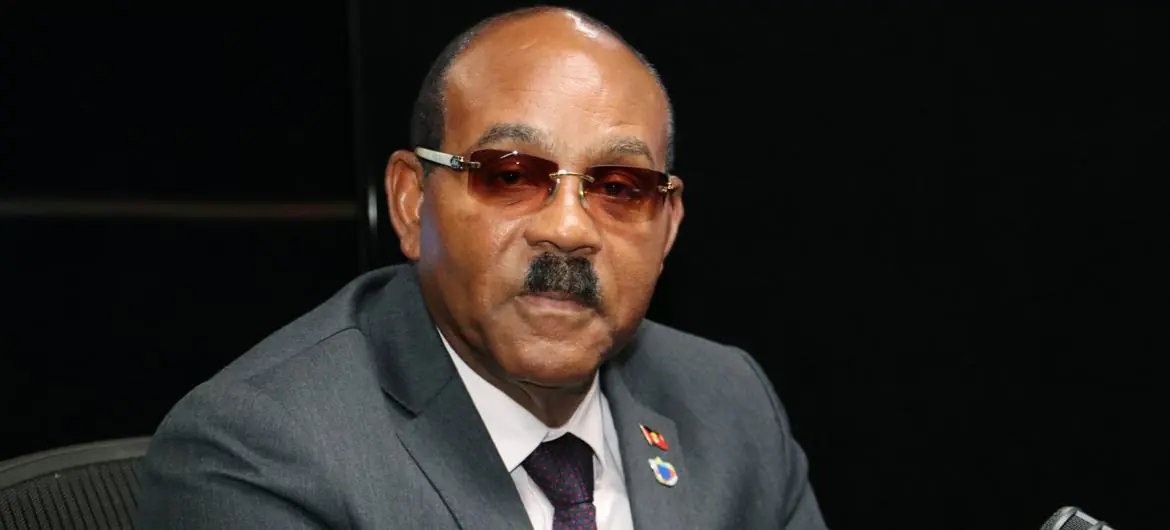Antigua and Barbuda’s Prime Minister Gaston Browne’s tussle with the Antigua and Barbuda Workers Union (ABWU) over the representation of the hospitality sector workers is well known and he has now renewed his push for the formation of a new union dedicated to those workers. The Labour leader has reiterated that ABWU has failed to represent employees in the sector effectively.
The prime minister lashed out at the union yet again in a radio interview recently, saying the latter made political compromises and did little to secure wages and benefits for those employed in the hotel industry.
Browne slams ABWU over workers’ interest
Browne alleged that ABWU prioritized politics over advocating the workers’ interest, saying the union is closely connected with the opposition and overlooked key issues such as increasing wages and service charge transparency. David Massiah, a senator of the Opposition United Progressive Party, is the secretary general of ABWU.
He said many hotel employees have complained about mismanagement of service charge funds but the union did not do proper audits or challenge the employers on behalf of the workers.
“The ABWU has collected millions in union dues over the years, yet what have they done for hotel workers?” the PM asked.
“We are talking about the largest workforce in the country, and they are being left behind.”
Browne also brought the accusation against ABWU he has done in the past, saying its officials have financial ties with major hotels which bars the body to effectively advocating for the workers.
“How can you represent workers fairly when you’re receiving contracts and benefits from the same employers you are supposed to be negotiating against?” Browne asked.
The prime minister feels a sector-specific union will lead to better bargaining power, financial transparency, and additional benefits, including access to housing and credit union services.
ABWU slams PM Browne
While some workers were open to Browne’s idea, representatives of ABWU hit back saying the PM’s push was politically motivated.
In a press release issued on Saturday, February 1, it said, “The Gaston Browne Administration continues to take steps to undermine workers’ power within the Hotel Industry. The latest move by the Browne Administration has been to spearhead and sponsor a new hospitality workers union with the aim of fragmenting workers’ power and diminishing the strength of collective bargaining. The Antigua and Barbuda Workers’ Union (ABWU) strongly condemns this union-busting tactic!”
Defending its own performance over the past two decades, ABWU said it ensured that the working conditions were improved significantly and with that, the lives of several hospitality workers through strong collective bargaining negotiations with the hotel employers. It said those agreements underscore the principles of work and shared prosperity.
In January, ABWU President Kem Riley also criticized Browne’s push for a new union for the hospitality workers, saying it was an attempt to “union bust”. Defending ABWU’s track record securing benefits for hotel workers such as medical coverage, he said the PM went down a very bad road attacking the union.
It may be mentioned here that on January 23, Browne met concerned officials to take up the task of setting up an advisory board to create a distinct union dedicated to the workers’ cause. Also last month, he produced financial documents to back his allegations against the union’s finances being run poorly and asked whether the union’s profits should be taxed.
The PM negated the criticisms and said the decision to form a new union rested with the hospitality workers. He said it is they who need to understand whether they are satisfied with ABWU’s leadership or need an alternative platform.
Hinting at potential government support for the new union in areas such as the allocation of land for workers’ housing projects and provision of small business loans, Browne said the government would not exercise any direct control over the union or provide it with funds. He emphasized that the union’s management would exclusively be with the hospitality workers.
Browne’s focus on a separate union for the hospitality sector workers underscores his concern that if local workers leave the sector due to unfair treatment, it pushes the public sector and hotels to look elsewhere for people, increasing the country’s growing reliance on immigrants. Antigua and Barbuda’s economy is too reliant on the tourism sector to allow it to face any hardship.







